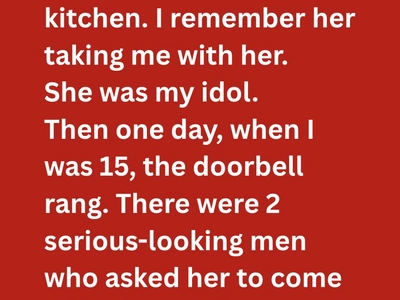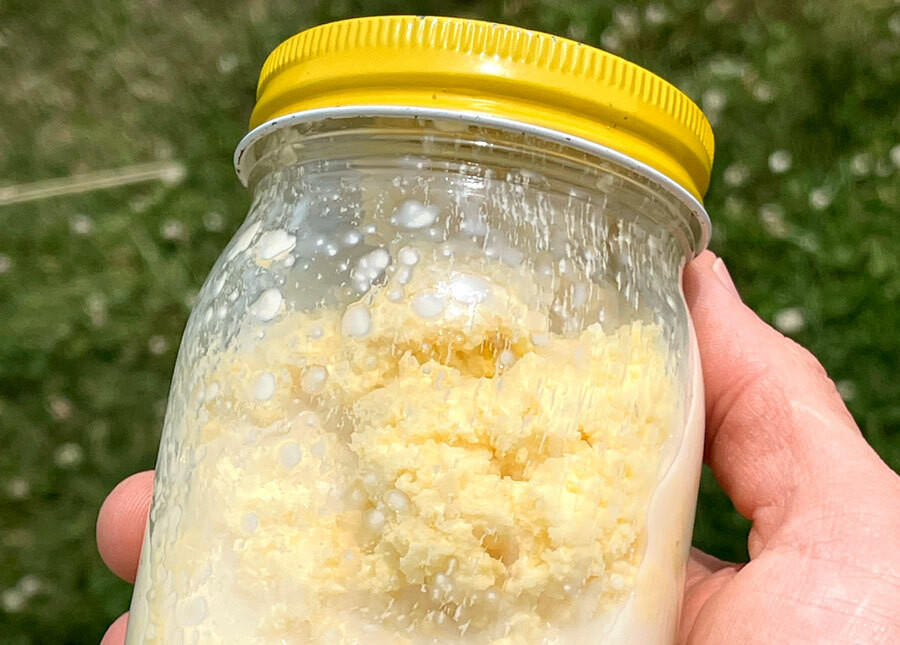The Secret Behind the Soup Kitchen: My Mom’s Hidden Mission
Some of life’s deepest lessons don’t come in the middle of bright stages or with thunderous applause. They don’t shout. They don’t announce themselves. They slip in quietly, softly, almost as if they don’t want to be noticed. And often, they come from people who seem ordinary to the world but carry something extraordinary inside them.
For a long time, I thought kindness was about what you could see. I thought it was about giving away soup and blankets, smiling at strangers in the street, saying the right words at the right time. I believed kindness was about visible acts—things you could point to and say, “See, that’s goodness.” That’s what I thought when I was younger. But life has a way of breaking apart simple ideas and showing you that there’s so much more beneath the surface.
It wasn’t a sudden lesson, not at first. It built slowly, quietly, like a melody I couldn’t quite hear until one day it became too loud to ignore. The day I finally understood changed everything. It shifted the way I saw my mom, the way I saw myself, and even the way I understood what it means to be brave.
I can still see her hand in mine, the way her fingers wrapped around mine as we walked down the narrow streets of our small town. The sidewalks were cracked, the shops mostly family-owned, the kind of place where everyone knew everyone, or at least thought they did. When we walked together, I felt like the whole world noticed her. Not because she was loud or glamorous, but because of the way she carried herself—gentle, open, calm, as if she had time for everyone.
The kitchen was always warm when we arrived. I remember stepping in and feeling my cheeks heat up after the cold wind outside. The smell of homemade bread drifted through the air, thick and comforting. Soup simmered in big metal pots, the kind so tall that I had to stand on tiptoe to see what was inside. People lined up, some tired, some smiling, others with eyes that looked like they carried more weight than their bodies ever should.
She told me we were there to help people who didn’t have enough to eat. That explanation made sense to me. I was a child, and I didn’t question it. I looked at her with wide eyes and thought she was doing something noble, something pure. She would smile at everyone, always the same warm smile, as if each person was the most important person she’d seen that day. And I wanted to be just like her.
It became our ritual. Every Saturday morning, no matter the season, we walked hand in hand to that kitchen. I would watch the steam rise from the bowls of soup as I handed them to people who looked grateful, though sometimes too tired to show it. In the winter, we gave out blankets. I loved the way people’s eyes softened when they wrapped one around their shoulders. In my young mind, it was simple: we were doing good, and my mom was a hero.
For years, I lived in that belief. It became part of me, the rhythm of my weekends, the pride I felt when someone leaned down to tell me, “Your mom is such a kind woman.” I’d beam, my chest puffed with pride, certain I was the luckiest child in town.
But life rarely tells you the whole story all at once. It waits. It lets you live inside one truth until you’re old enough, strong enough, or maybe just ready enough to see another one. That moment came for me when I was fifteen.
It was a gray afternoon, the kind where the rain doesn’t just fall but lingers, soaking the world slowly, turning everything muted. I was at home, stretched on the couch with a book in my hand, when the doorbell rang.
I remember the sound—it felt sharper than usual, urgent somehow. When I opened the door, two men stood there. They weren’t dressed like police officers, not in uniforms, but something about the way they carried themselves felt official, heavy. Their eyes were serious, their mouths tight, like they were holding back words they didn’t want to say.
“Is your mother home?” one of them asked. His voice was calm but firm, the kind of tone that made you straighten without knowing why.
Before I could answer, my mom appeared behind me. I turned, expecting her to greet them with her usual smile, but her face had drained of color. She looked as if she’d been waiting for this exact moment, bracing herself for it.
“Ma’am,” the taller man said softly, “we need you to come with us.”
My heart stuttered. “What’s going on?” I asked, my voice breaking between fear and confusion. The men glanced at each other, and then one crouched slightly so he was closer to my eye level. His face softened, though his words still felt like they belonged in another world.
“Your mother has been under investigation,” he said quietly.
The words hit me like a blow. Investigation. It sounded like something from television, from crime shows, not from our small house with the warm kitchen and the woman I adored.
I looked at her, desperate for her to deny it, to laugh and tell me it was a mistake. But she didn’t. She simply placed a hand on my shoulder, steady but trembling, and looked at me with eyes that held both sorrow and love.
What they told me next unraveled the world I thought I knew. The place I had believed was a soup kitchen wasn’t just about food or blankets. It was a shelter—but not the kind anyone could see. It was a safe house for women and children escaping dangerous situations. They had been running from people who hurt them, people who would have done far worse if they were found.
The secrecy was everything. It wasn’t just about privacy; it was about survival. Every smile my mom gave, every blanket she wrapped around a trembling pair of shoulders, every bowl of soup she handed over—it had been part of something far bigger, far braver than I ever imagined.
Those men weren’t there to arrest her. They were there because her work had been discovered by dangerous people, and now she had to be moved for her own safety and for the safety of those she had helped.
Tears blurred my vision. I couldn’t understand how the world I thought was safe and simple had so many hidden layers. I couldn’t understand how my mom had carried such a secret, right in front of me, without ever letting it slip.
She pulled me close, holding me so tightly I thought my ribs might break. Her voice trembled in my ear as she whispered, “I wanted to teach you kindness without putting you in danger. I never lied about helping people. I just couldn’t tell you everything.”
In that moment, the image I had of her shifted. She wasn’t only my mom, the woman who baked bread and wiped my tears and made the world feel steady. She was something more. She was a quiet, fearless protector. A hero who never asked for recognition.
That night, after she left with those men, I sat in my room surrounded by silence that felt too heavy for my fifteen-year-old shoulders. My thoughts spun. I kept seeing her smile in the kitchen, the way she treated everyone as if they mattered, the way she made me believe in simple kindness. But now I saw it differently. Those moments weren’t simple at all. They were layered with courage, with danger, with sacrifices I had been too young to notice.
For years afterward, I carried that moment like a stone in my pocket—sometimes heavy, sometimes comforting. I didn’t always understand what to do with it. Part of me felt betrayed, angry that she hadn’t trusted me with the truth. Another part of me, the bigger part, felt awe. How do you hold a secret that large, that dangerous, and still find the strength to smile every day? How do you teach kindness while hiding the very reason it matters so much?
As I grew older, I realized that was the lesson she wanted me to learn. Kindness isn’t about being seen. It isn’t about applause or recognition. It isn’t even about doing something simple like handing out soup—though that matters too. True kindness is about what you’re willing to risk for someone else, even if no one ever knows you did it. Sometimes, the bravest acts are the quiet ones, the hidden ones, the ones done in secret for the sake of another’s safety.
Even now, years later, I carry her with me. I see her in small moments: when I pause to listen to someone who needs to talk, when I choose to help quietly without posting about it, when I remember that love doesn’t always need to be spoken to be real. She changed the way I see the world, not through words, but through the example she lived.
And maybe that’s the point. The most powerful lessons don’t come in loud declarations. They come in silence, in quiet strength, in the bravery of those who protect without being seen. My mom showed me that. She didn’t just teach me kindness. She showed me that sometimes, the kindest hearts are the ones carrying the heaviest secrets.
And that, more than anything, is what I will never forget.






